Ontario Parks is pleased to unveil a new outdoor activity that we hope will help connect you and your family to our amazing system of parks!
We’ve teamed up with Adventure Lab to create seven unique “Adventures” that teach you about our protected spaces!
What’s Adventure Lab?
Geocaching Adventure Lab is a new platform that allows you to create, play, and share location-based experiences.
The Adventure Lab app guides players through the process of finding clues, solving puzzles, and completing Adventures, one location at a time.
Geo – what?
For some of you, geocache may be a new term. Think of it like orienteering, but instead of a compass, you are using GPS coordinates right on your phone.
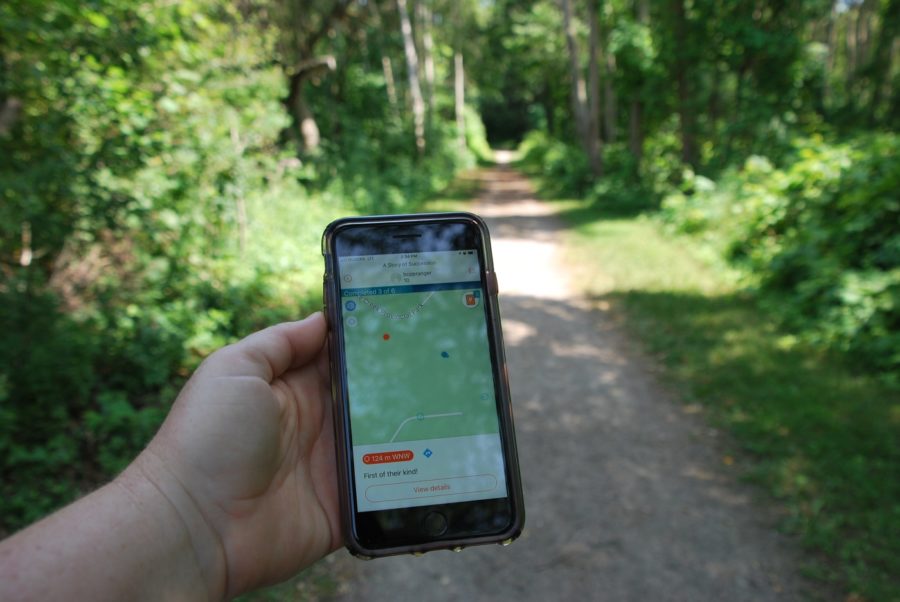
Traditional geocaching involves physical “caches,” where searchers try to find hidden containers or objects (not permitted in provincial parks).
The virtual-style geocaching used in Adventure Lab has searchers locating specific spots and landscapes (instead of physical objects), like a scavenger hunt, but following a story.
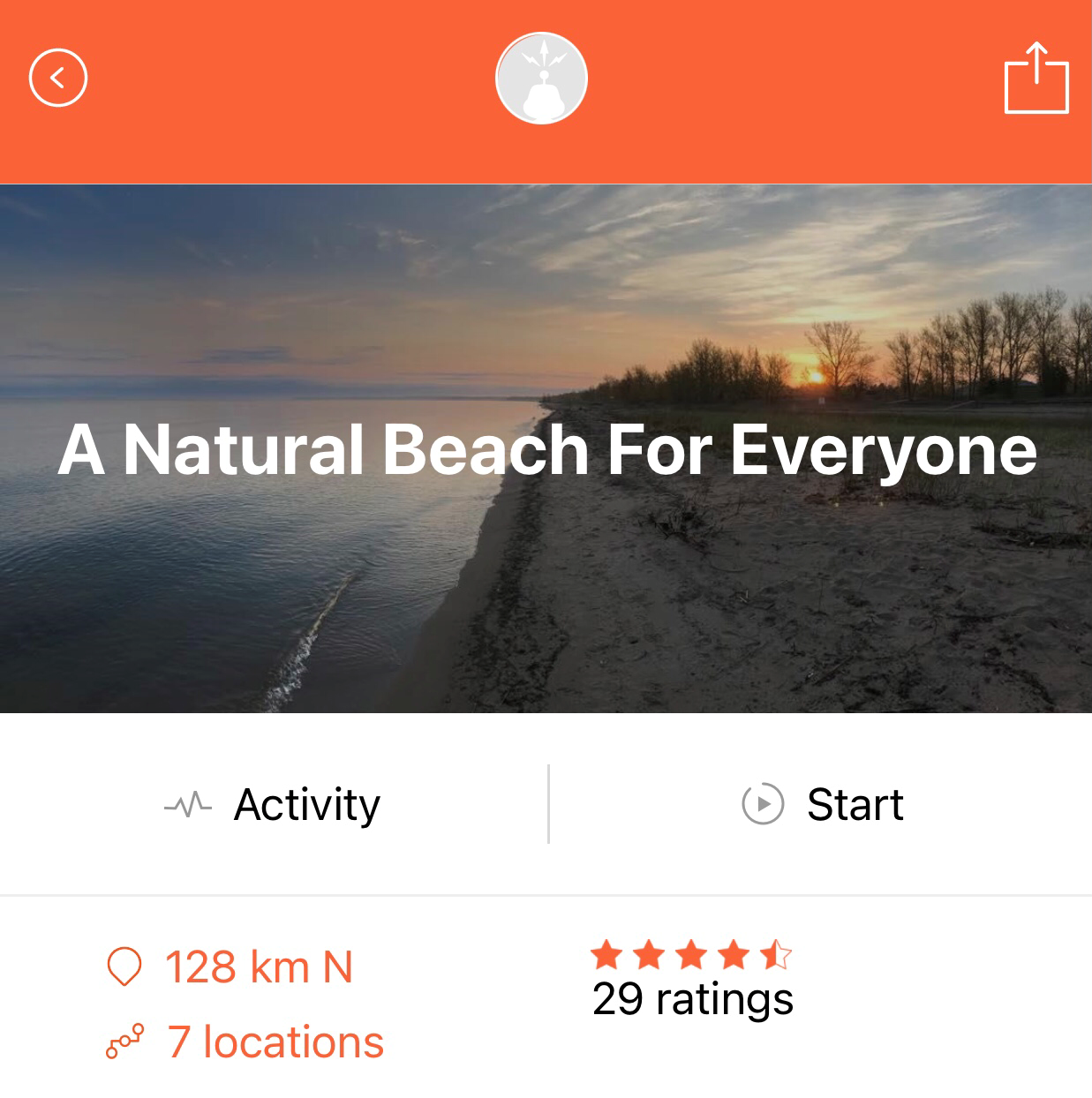 Our Discovery Program staff have been challenged to come up with new ways to reach our visitors in the safest way possible. The use of technology has helped bridge this gap. The Adventure Lab app provides park visitors with an easy-to-use, self-led tour through our parks.
Our Discovery Program staff have been challenged to come up with new ways to reach our visitors in the safest way possible. The use of technology has helped bridge this gap. The Adventure Lab app provides park visitors with an easy-to-use, self-led tour through our parks.
It’s like having your very own naturalist leading you on a guided hike!
How do I get started?
- grab your electronic device with cell service (and be sure to turn location services ON)
- download the Adventure Lab app (available for iPhone and Android)
- create a free account/ profile
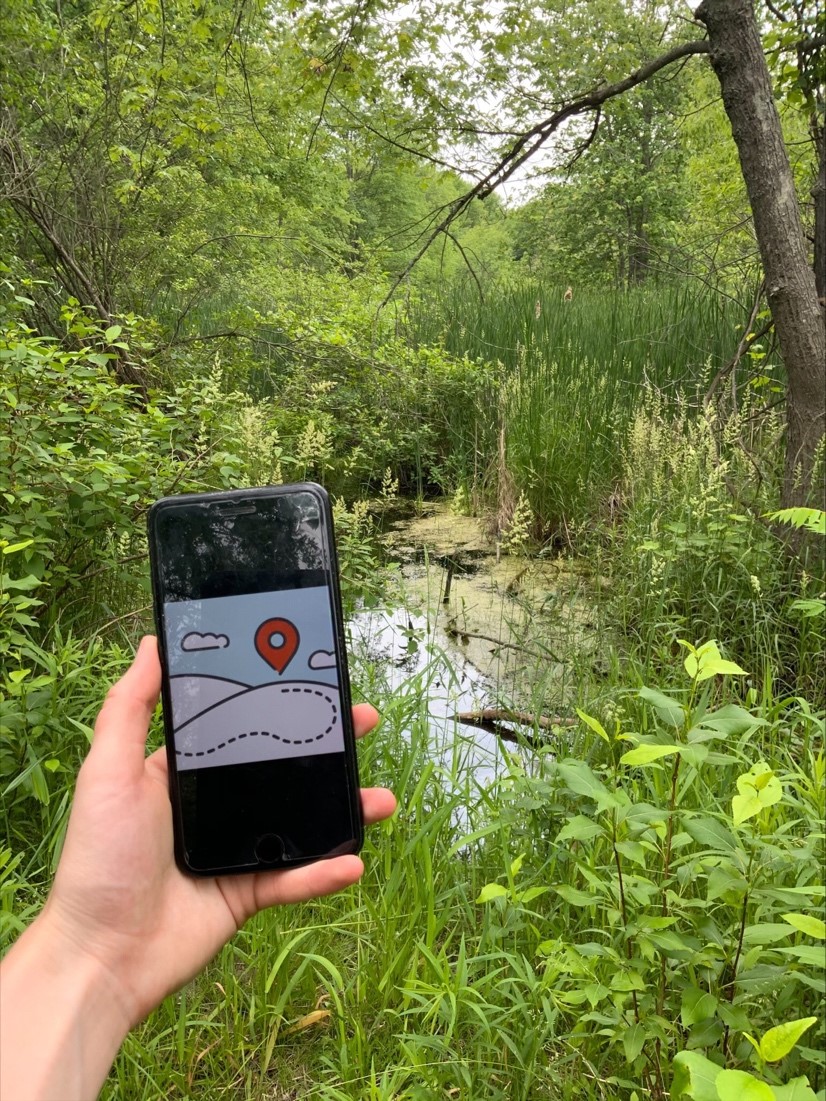 Open the app and search for tours. Click the markers to open the title page of that adventure. You can then read the description, location, and comments on the activity log.
Open the app and search for tours. Click the markers to open the title page of that adventure. You can then read the description, location, and comments on the activity log.
Once you are in the park, click the “start” tab on the title screen your chosen adventure. The compass icon in the top-right corner of the screen will point you in the direction of the first/next point of interest on the tour.
The cool thing about using GPS is that the location you are trying to find is shown on the screen and the metres will actually “count down” to tell you if you are moving in the right direction.
When you get to within 5 m of the “location,” tap your screen and the interpretive stop information will come up.
When you’re close to the point of interest, click on the spot of the map to view details. Read the description or listen to the video clip. Then answer a question to unlock the next stop on the adventure.
Which parks offer Adventure Lab?
Algonquin Provincial Park – “Old Airfield edition”
The Old Airfield is one of Algonquin’s many hidden gems. Although it is sandwiched between two of the park’s campgrounds, many visitors are not aware of its existence.
This area is rich in natural history as the open space provides a break in an otherwise unbroken forest, a very attractive space for wildlife of all kinds. The Adventure Lab has many mentions of looking for animal signs, birds, and berries while on the hike.
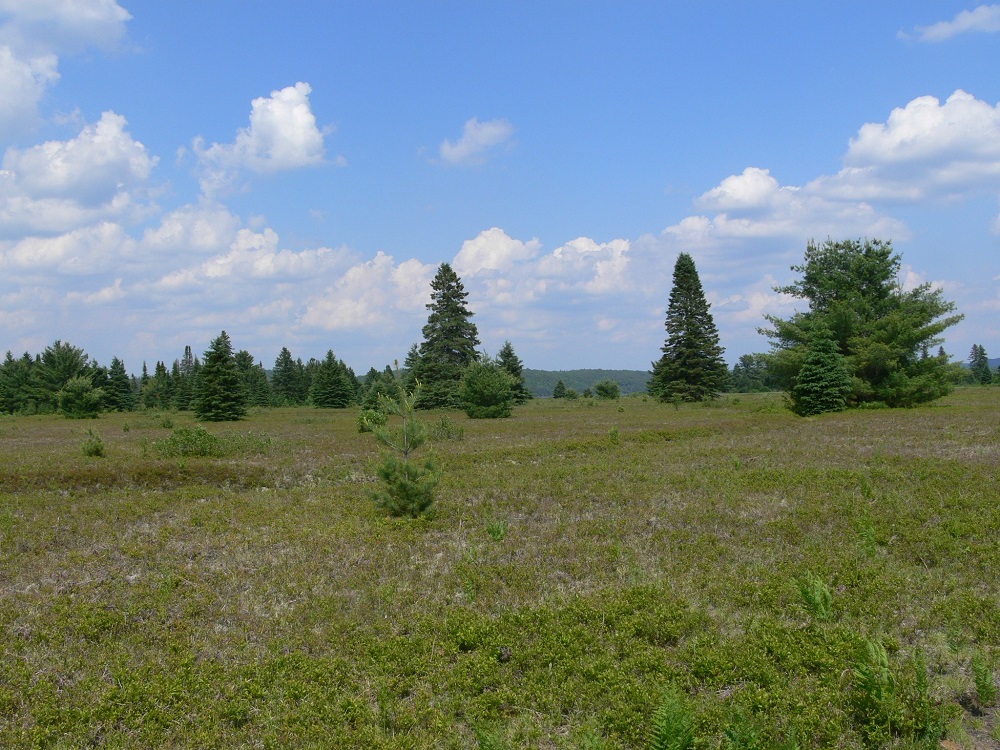
Additionally, the cultural history of the Airfield is just as rich. The Airfield is named appropriately as it was originally cleared in 1935 to serve as an emergency landing strip and would sometimes host fly-in events!
The uniqueness of this habitat encouraged the park to clear the area of trees, using prescribed burns.
While we often think of provincial parks as protected spaces, they do bear the marks of human activities, and we can see how these marks heal over time.
The trail through the airfield is flat and wide, making it very accessible for all ages.
Bronte Creek Provincial Park – “The Story of Succession”
Bronte Creek is perfectly suited for this virtual scavenger hunt! The park has great cell coverage, and is convenient for GTA and Golden Horseshoe residents.
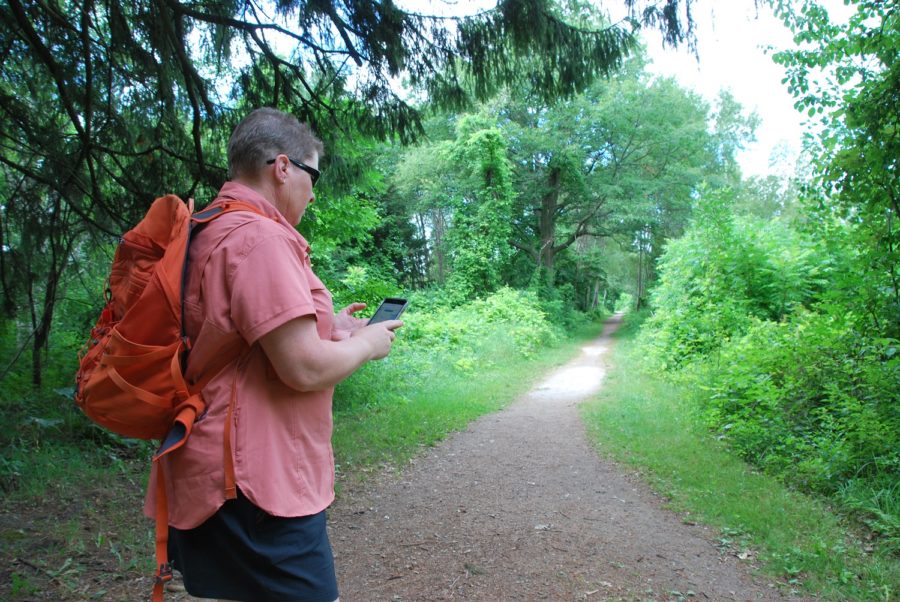
This tour is entitled “A Story of Succession,” which we thought was fitting for this year. After all, change is all around us – in our lives and in nature.
The fact is: nature is always changing. Sometimes the change is gradual and sometimes it happens suddenly from unexpected events like storms or fires. Whether it is quick or slow, change is part of an important natural process called succession.
MacGregor Point Provincial Park – “The story of Glaciation in MacGregor Point”
MacGregor Point is located on the Huron Fringe, a unique ecosystem and migration corridor for many of Ontario’s species. This strip of wetlands, raised beaches, wave-cut terraces, and sand dunes support high biodiversity and are important habitat for migratory birds and species at risk.
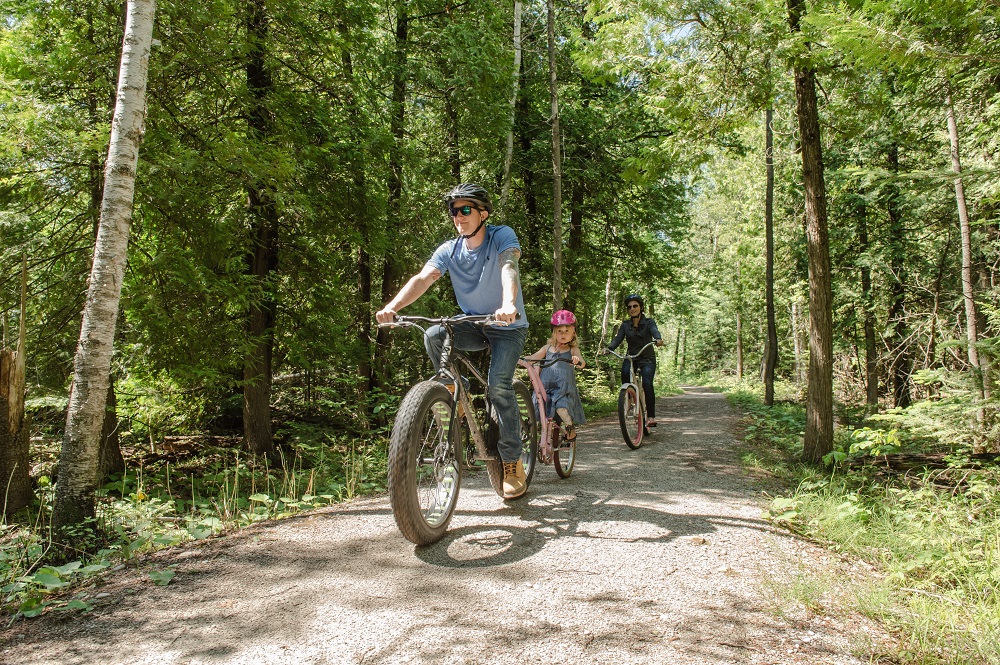
These habitats are the result of ancient glacial processes that shaped the physical landscape of the park as well as the biological communities that live there.
MacGregor Point’s Adventure Lab, “A Story of Glaciation,” leads you through their popular Deer Run Trail. It introduces you to the varied landscapes of MacGregor Point and the powerful forces which shaped the landscapes of southern Ontario.
Pinery Provincial Park – “Habitat Tour”
Explore four rare habitats in Ontario all in one day!
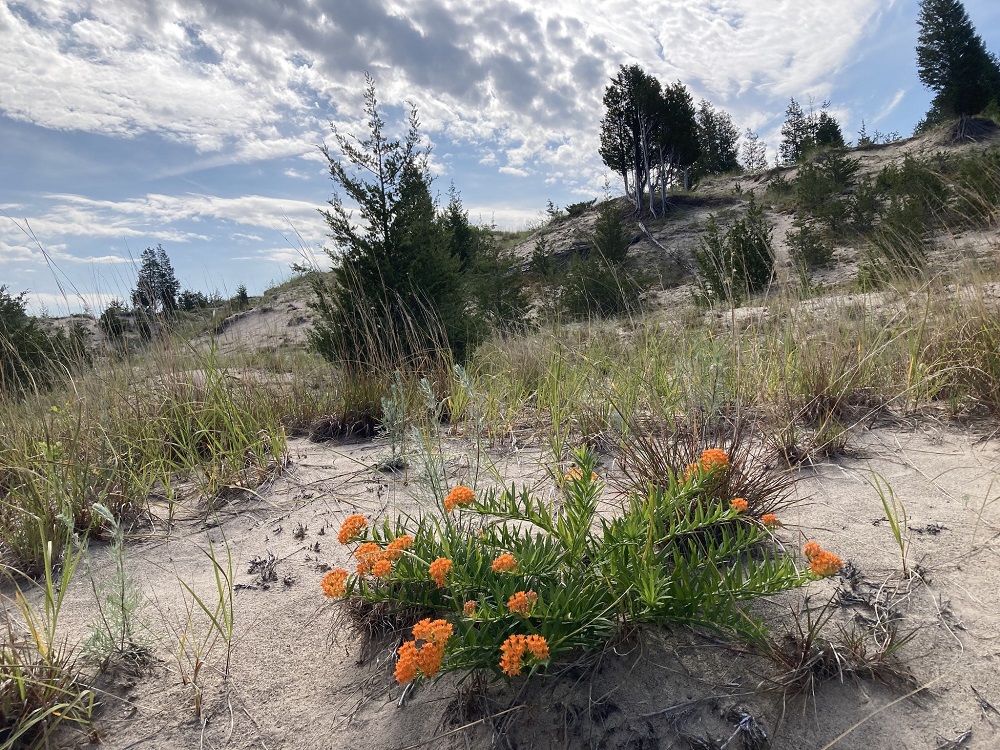
Experience the Freshwater Coastal Dunes, the Old Ausable Channel, the Oak Savanna, and Lake Huron, as you learn about these unique ecosystems and the rich diversity of wildlife that call them home.
This Adventure Lab lets you experience each of these incredible habitats firsthand while seeing a new side of the park.
Rondeau Provincial Park – “A Story of Protection”
Rondeau is nestled in the heart of Carolinian Canada, and is home to species of plants and animals that can’t be found anywhere else in the country! Many of these species are considered “species at risk,” and rely on the integrity of Rondeau’s diverse habitats for protection.
Rondeau’s Adventure Lab, “A Story of Protection,” leads you through our popular Tulip Tree Trail. It introduces you to the Prothonotary Warbler, a rare bird who travels thousands of kilometers each year to nest in Rondeau’s flooded forests.

Discover why Rondeau is such a great home for these birds, and how you can help protect Ontario’s species at risk as you hike through prime breeding habitat for this iconic species.
Sandbanks Provincial Park – “Life Along the Cedar Sands Trail”
The special dune systems at Sandbanks are host to many habitats, with one of the most intriguing being our inter-dune, cedar forest.
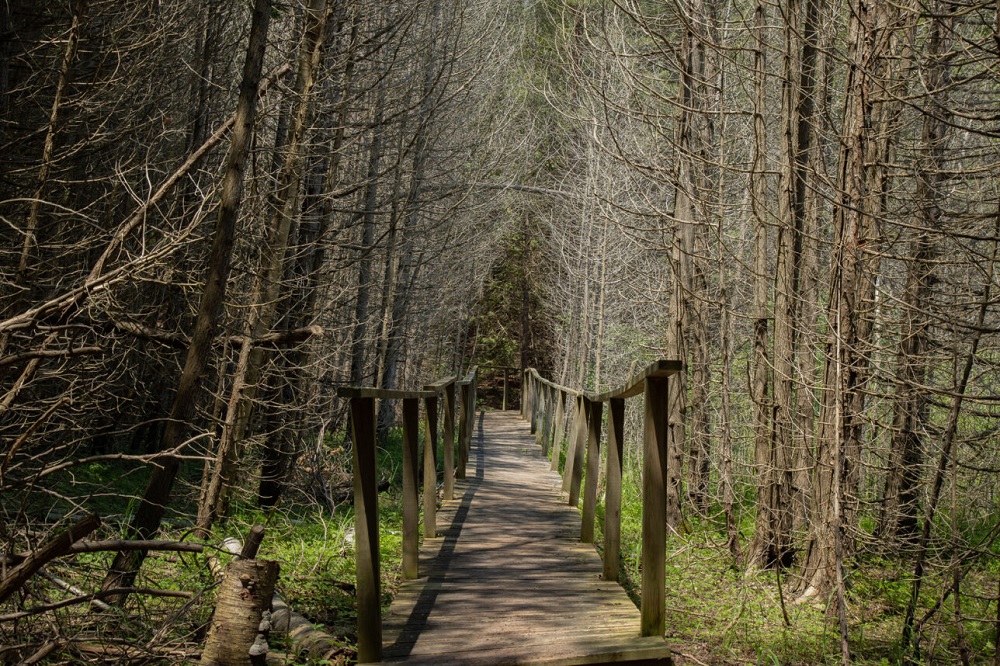
With this adventure, you will hike through this woodland that runs along the Outlet River. Explore open dunes, shaded woods, a vibrant river, and unique wetlands hidden in the forest. Moving through both terrestrial and aquatic environments, a wide assortment of wildlife can be spotted.
From Red Squirrels chattering at you from the cedar trees to the sounds of the marsh birds, discovery is always just around the corner. Boot up the Adventure Lab, grab a trail guide, and embark on one of the park’s most iconic trails!
Sibbald Point Provincial Park – “Habitat Diversity at Sibbald”
Sibbald Point is a protected area that supports many diverse habitats.
As a provincial park in an urban setting, it is important to maintain the park’s ecological integrity and support the biodiversity of native plants and animals found within the park.
While following this adventure, you will become familiar with the different habitats and that are found at Sibbald Point and the animals that call them home.

Make sure to remain on paths, use caution on roadways, and do not disturb the wildlife as you follow along.
To some this might look like a field of “weeds.” After completing our Adventure Lab, you might see things differently.
Wasaga Beach Provincial Park – “A Natural Beach for Everyone”
Every year, Wasaga Beach Provincial Park welcomes over 2 million visitors, making it the busiest park in the province!
As a result, the park works to maintain a delicate balance between the protection of the freshwater coastal dune system while also creating a space for recreational activities.
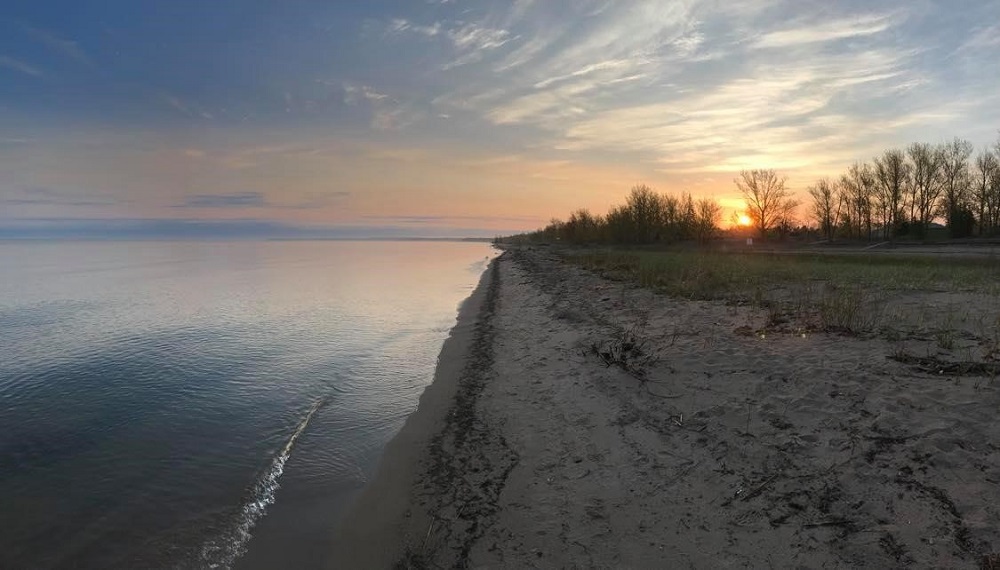
As you stroll along the sand in Beach Area 1, discover how you can help protect this globally imperiled freshwater coastal dune system.
Wasaga Beach’s Adventure Lab, “A Natural Beach for Everyone,” introduces visitors to the many features that make up their beach habitat and why those features are just as important to humans as they are to the animals and plants that call the park home.
Planning a trip?
Leave yourself lots of time; you’re bound to get distracted looking at birds in the nesting boxes or the dragonflies and butterflies warming themselves in the sunny patches along the trails.
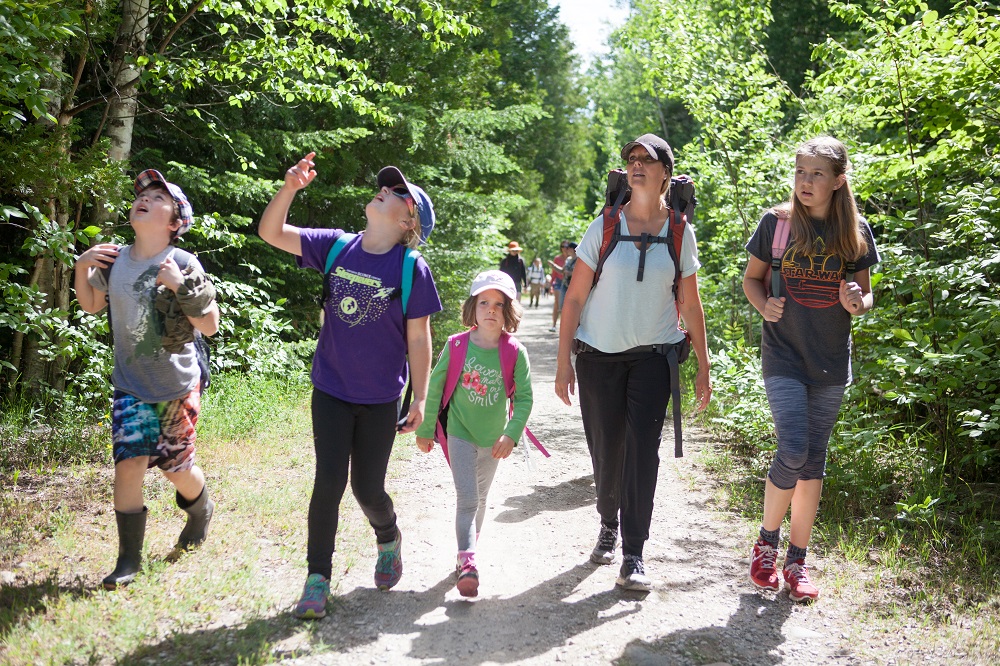
These adventures are great activities for campers and school groups alike! Why not gather the family, pack a picnic, and make a day of it?
